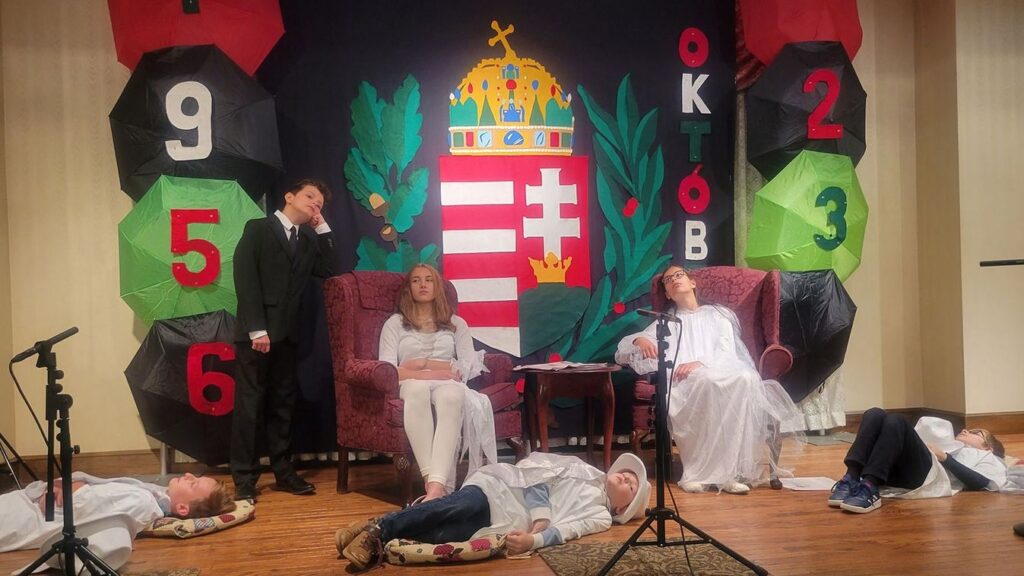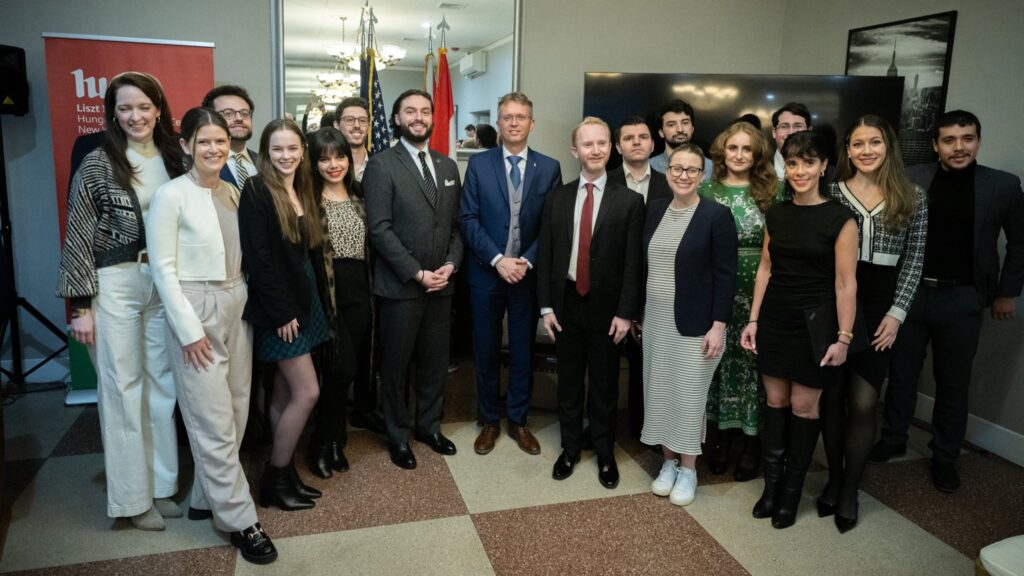Oliver Zrínyi is a 26-year-old musician, born and raised in Macedonia, who is proud of his Hungarian roots deriving from his Hungarian great-grandmother. He had been in contact with the local Hungarian community in Macedonia and visited Hungary three times through the Rákóczi Association’s summer camps. Three years ago, he was one of the first applicants for the Diaspora Higher Education Scholarship Programme for a Master’s degree in classical guitar in Pécs, Hungary, which he continued with a one-year intensive course in Hungarian language. He recently applied for a third Diaspora Scholarship, this time for his PhD and is waiting for the response. His dream is to earn his living as a guitar teacher settled in Hungary.
***
Why did you apply for the Diaspora Higher Education Scholarship Programme originally?
I have always wanted to go abroad, even in elementary school, but there was no option for that. Then I wanted to study for my bachelor’s degree in music abroad. Unfortunately, I didn’t have any formal musical education, so I had to study very hard for a year to get into a musical school, at least in my country. Initially, I wanted to study in Berkeley (California), but this was financially impossible without a scholarship, so I continued my studies in Macedonia and graduated the year when COVID started. I didn’t really have any plans afterwards as everything was so uncertain in the world. I took a yearlong break, during which Sutus József, president of the Hungarian community (Teleház), informed me about the launching of a new scholarship for Diaspora students. I checked all the options but there was no Master’s degree available in jazz guitar, only in classical guitar, which was ‘only’ a hobby for me. I have always practiced it, but never took it completely seriously, as I was more into jazz, playing it also with my band. But I felt the best when I was playing classical guitar alone, because it sounds so full. I have always practiced pieces by composers like Bach. After consulting with all my teachers and friends, I finally decided to apply. Thankfully, I got the scholarship.
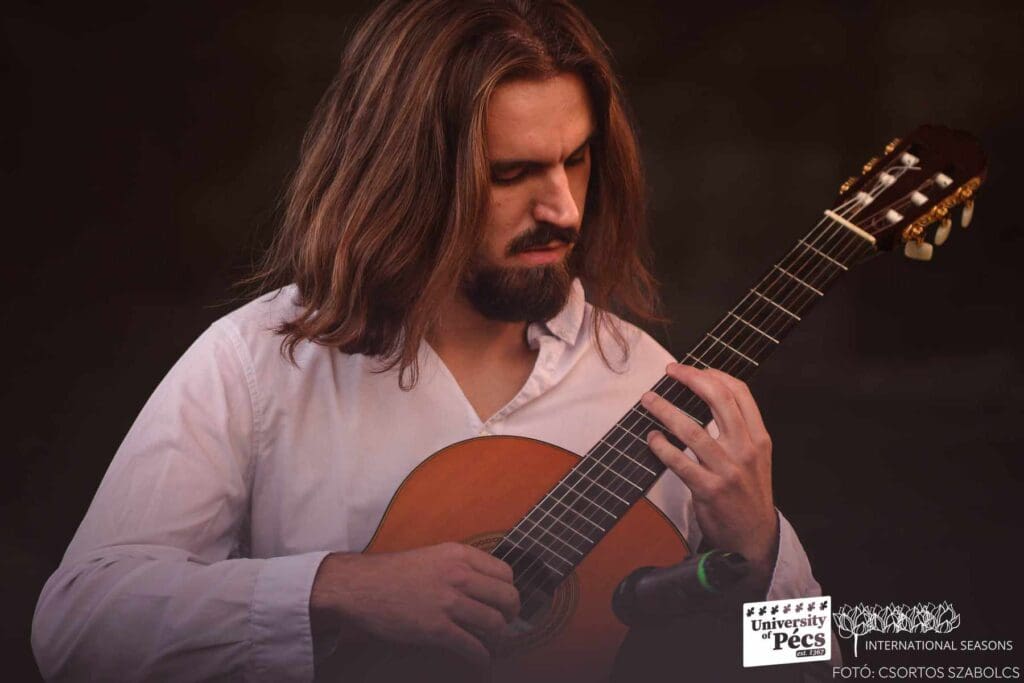
To apply for it, you need to have Hungarian roots. What is your story?
My great-great grandmother was born in the Austro–Hungarian Empire, on the territory of the current Croatia. After the Treaty of Trianon Croatia became part of the Kingdom of Yugoslavia, and later, the Federation of Yugoslavia. During the latter, my great-grandmother moved to Macedonia for work. My grandmother’s husband was a Serb living in Macedonia, and my mother was born and raised in Macedonia. My father’s mother was Macedonian; his father was Serbian. At home I learned about Hungary, but not the language. My great-grandmother was the last person in the family who could speak the language and she passed away when I was eight–nine years old. She didn’t teach my grandmother Hungarian, probably because of political reasons. In any case, my grandmother didn’t speak Hungarian, but interestingly she understands a lot, because she grew up in Croatia close to the Hungarian border. She knew a little bit of Hungarian when she was growing up because a lot of the people there spoke both languages. She now lives both in Macedonia and Croatia and I visit her every summer. She was very happy when I got the scholarship, and so were my parents, who currently live and work in Switzerland and Macedonia. They were happy for me because I finally got the chance to realize my dreams of living in Hungary and learning more about Hungarian culture, history, tradition and cuisine.
In addition,
Hungary is a country where they nourish their rich culture and art.
There are classical concerts all the time and the concert halls are always full. As a musician, more into the musical art than the music business, that’s what I like the most about this country.
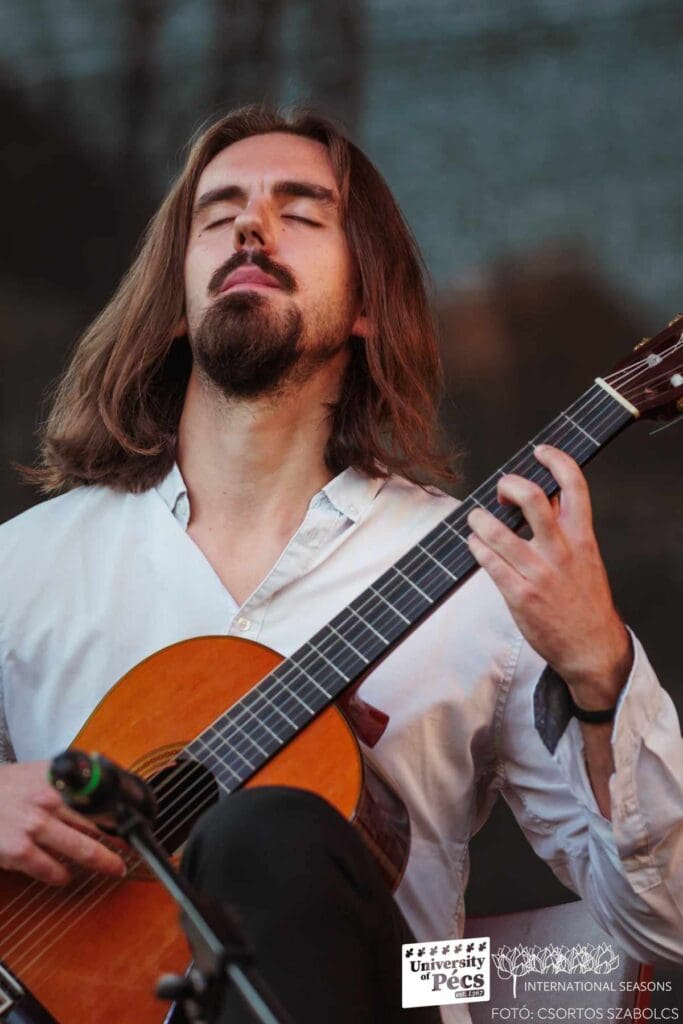
What were your first experiences in Hungary?
In the first two years I mostly learned about music. We also had some Hungarian language lessons, but honestly, I couldn’t pay that much attention to them because I had to focus on my music studies, which were delivered in English. I think Hungary is probably the only country in Europe that has every higher education course available in English in addition to Hungarian. This is very helpful for me and for a lot of other foreign students. I think that’s why there are so many foreigners here. For example, in Pécs, there is a huge community of foreigners who study here, and some of them stay after their studies. I have met people from all over the world, from the Far East to Latin and North America.
Have you experienced any culture shock?
There was no real culture shock for me because I was somewhat prepared, and because my country is not that far from Hungary: we have much more in common than, for example, my friends from China or Korea have. Still, at the beginning it was interesting to survive without knowing Hungarian. Since I have some allergies, I wanted to read the labels, but everything was labelled only in Hungarian. These were the first words I had to learn. I also had to learn greetings and some basic words and phrases, especially when I went to markets and groceries without self-checkout counters, where I needed to talk to the cashier. At the self-checkout counters, you always see a line of foreigners. In the first month, I had internet only in my apartment, but not on my phone, so it was challenging to get to the music faculty, which was an hour walk from my apartment, without GPS. I had interesting meetings also with government offices, a conductor on the train, and at the doctor. Most of them treated me nice, but it was not easy to make myself understood. For example, the doctor’s English was very basic, as bad as my Hungarian. He read my last name and started with very easy Hungarian questions, which I could answer, and then he started to advise me in Hungarian, and my mind just activated 100% and I could fully understand what he was telling me. The key, I think, is to always be prepared before you go somewhere. Therefore, it is good that it is mandatory to learn Hungarian for the first year even for the students having a Stipendium scholarship, i.e. not only for those having a Diaspora scholarship.
Do you have some other funny stories?
Most Hungarians are very happy when a foreigner tries to speak Hungarian with them. I have already developed the skill of detecting who speaks English and who doesn’t. Most of the time I’m correct. For example, when I went to the train station to buy the Országbérlet (Hungary Pass), which I found to be a great thing, I saw the person working there and realized that he didn’t speak English. In these cases, wherever I go, I start with: ‘Hi, I am a foreigner, I speak little Hungarian…’ to prepare them. And this person got so amazed by my Hungarian that he called all his colleagues to listen to me, which was funny. On another occasion, a very elderly lady approached me and I couldn’t understand what she wanted, so I told her the same basic sentences. She replied in English with perfect pronunciation asking for help to cross the street.
You mentioned your last name. Your father is not Hungarian, how did you become Zrínyi?
My parents divorced and I took my mother’s last name.
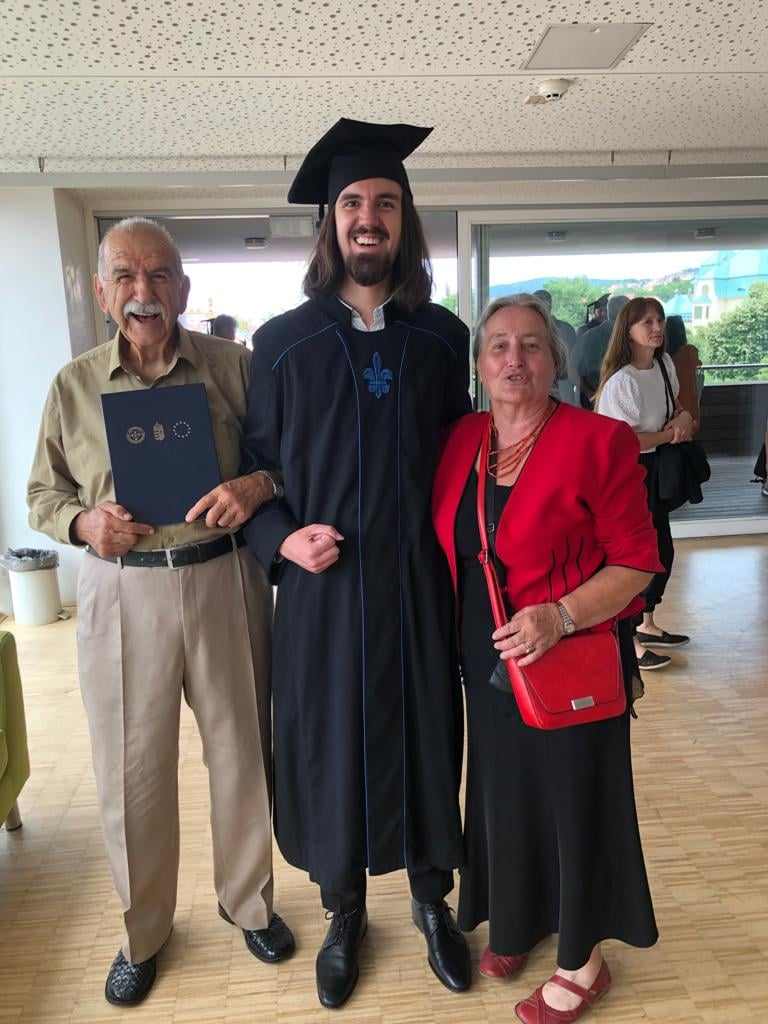
What is your opinion about the Diaspora Scholarship Programme and the mentor program?
The scholarship organizers are taking care of us very well. For example, Bence Kónya, who initiated the e-mail leading to this interview, is one of the coordinators of the scholarship and he was always helpful to me. I met him in person and found him to be a cool guy. There are events every two weeks organized by the programme; for example, going to Bratislava (Pozsony), Slovakia or Sátoraljaújhely, Hungary or ‘just’ to a museum, to learn about historical events. Last Friday we went to Budapest for the 15th of March celebrations. They even ask for suggestions, so once I suggested visiting a thermal bath in Budapest, which did happen. We have a lot of cultural events, entertainment programs, there is even a language club for learning Hungarian. When I first came, I think there was no mentor program for the Diaspora scholarship, they started only in my second year. Mentors are usually Hungarian students or people who can speak Hungarian fluently. Their job is to help you out, tell you how to get a student card, a residence permit, how to find an apartment, etc. My first assigned mentor was an Indian PhD student, however, I managed to do everything by myself because we got a very good help-book from the university and we also had an international coordinator at the arts faculty.
You really need to be lazy and not ask anything to get in a situation which you cannot solve.
You seem to know quite a lot about Hungary’s history. Did you take courses also on that?
Well, history is one of my favorite subjects; I have always been interested in the history of Europe. The first time I got into Hungarian history was when I met a young Hungarian by the name of Attila Gara Petrilla, who spent a year with a scholarship in the Hungarian community in Macedonia, teaching Hungarian language. I think his major was in history. His parents were teachers nurturing Hungarian traditions, riding horses, using bows, wearing folk dresses, etc. He talked a lot about Hungary’s history and that’s how I got interested to check it on my own on the Internet initially and to learn further.
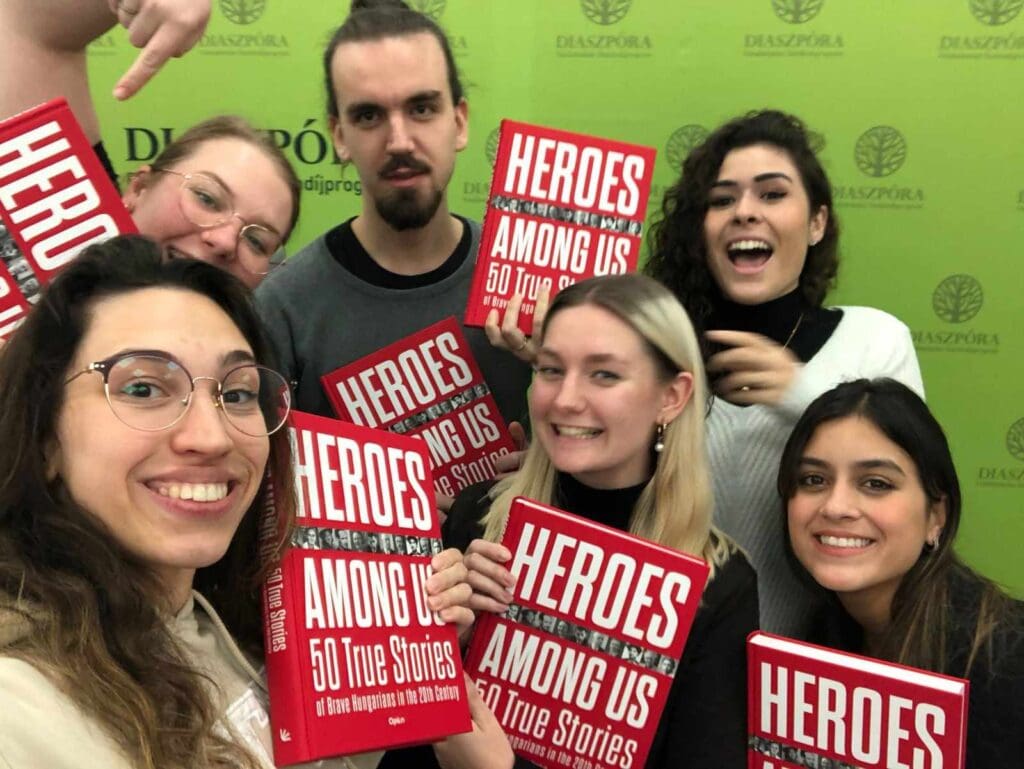
He was most probably a KCSP scholar, helping the local Hungarian community. Did you visit Hungary prior to the scholarship?
Probably yes, I forgot these details from seven years ago. I went to Hungary for the first time when I was 19 through the Rákóczi Association. We went to the Parliament, museums, learned about famous Hungarian inventors and athletes, about various theories in relation to the early history of Hungarians. I returned twice to Hungary with the same programme, once to a sports camp next to Lake Velence, and then for a folk dancing camp, in which I got very interested, and I continued learning it at home. One of our other scholars from Hungary, Ákos Vázsonyi was a Hungarian language teacher and used to be a folk dancer, so he showed me more dances and we were even preparing a joint performance for a 15th of March commemoration event, but unfortunately COVID broke out shortly before, so we could not make it. I also learned how to play citera (a Hungarian instrument) and I was teaching it to the community and had some performances there, where my mother was singing. She also started to learn Hungarian, and according to my teachers, her pronunciation is perfect, like that of a native Hungarian. She can sing, but is not yet able to speak fluently. In Switzerland, she is learning and using the German language. For now, I am the best Hungarian speaker in the family. Last summer we went to meet some of our relatives living in Hungary and none of them spoke English, so I was the translator. My mother was in contact with them, but I didn’t know this part of my family before. It was the first time I met them, and I was amazed how much my Hungarian had improved in the last two years and even during those conversations. When you are in a situation where you cannot use English but only Hungarian, suddenly a lot of Hungarian words reactivate in your head. My Hungarian relatives were so supportive, even though I was making mistakes, but they could understand mostly everything I was saying, and I could translate almost everything that they were saying. We have been keeping in touch ever since, especially on social media, and they’re inviting me for barbecues and trips to Lake Balaton.
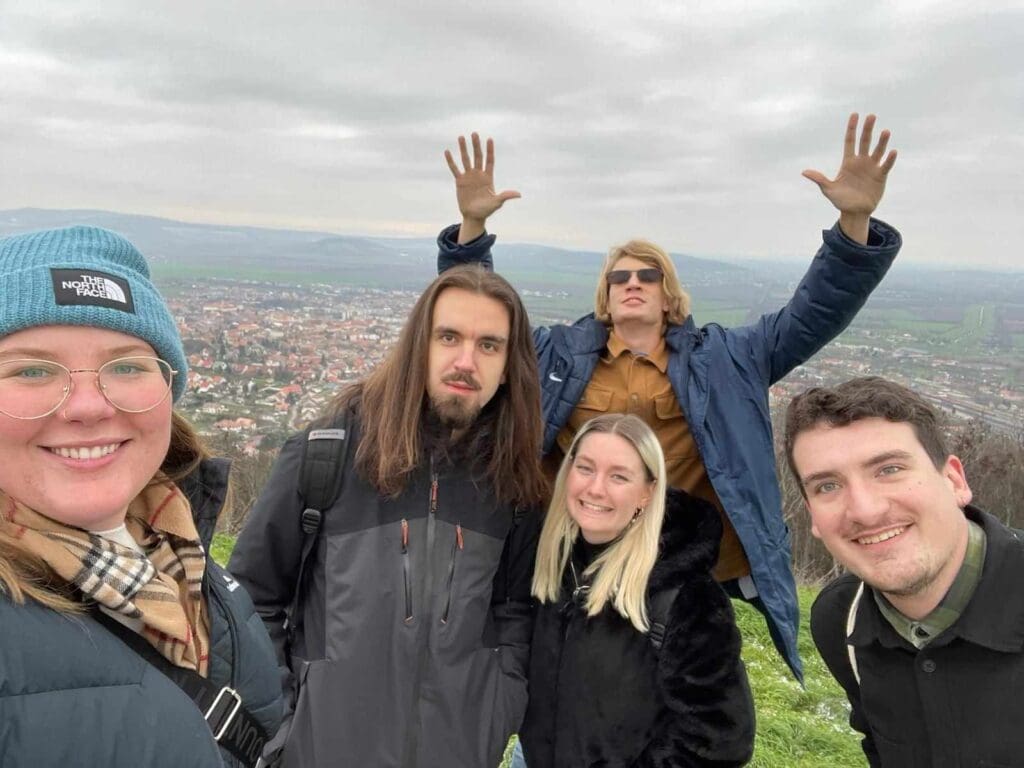
What about your studies this year? Why did you apply for this one-year scholarship?
I want to have my Hungarian language skills improved and thus prepare for the PhD. This is a language course, and they are also teaching us about Hungary’s history and culture. We are now learning about world history, but there is lots of material about Hungary, especially in relation to the Middle Ages. We also learn more difficult phrases. They are preparing us how to communicate in Hungary, how to connect with the locals and to be better at what we are talking about. We study six hours a day and follow the book called MagyarOK by Dr Katalin Pelcz and Szita Szilvia. Our first semester was at levels A1 and A2 and we were following these books. Now in the second semester we started at level B1 and we have two extra elective courses. I have a friend who chose biology to prepare himself for his future studies, but everybody else chose history. Unfortunately, there is no course for music. The other subject is liberal arts, with a different topic every week, for example, philosophy, economics, law, etc. We have tests every Monday and Friday and various types of homework: writing, reading out loud to practice pronunciation, or preparing a video conversation about a topic with another student.
What do you think about the city of Pécs? Do you plan to have your PhD also there?
I fell in love with the city at the beginning. As far as I know, it has the most foreign students in Hungary after Budapest. Whenever I want to do something related to Hungary, for example eat something Hungarian, I have it right here, but also there is the community of foreigners who are now opening their restaurants offering foreign food. It is very colourful and interesting. And very beautiful as well. Architecture is also interesting. There are very old buildings, lots of museums, and Roman graves, which are subject to UNESCO protection. And it is small enough to avoid public transport; it takes me a five–ten minute walk to the city centre. I planned to stay further, but fortunately or unfortunately, I can’t. For the PhD you must have a supervisor, and I could not find anybody here. I contacted a lot of other cities and faculties, sending my research proposal to them and trying to find someone who is interested in my very specific topic. I’m not applying to music faculties but rather education and psychology faculties, still related to music. Finally, I found a teacher who agreed to be my supervisor in the University of Szeged and one teacher from the psychology faculty from ELTE, Budapest.
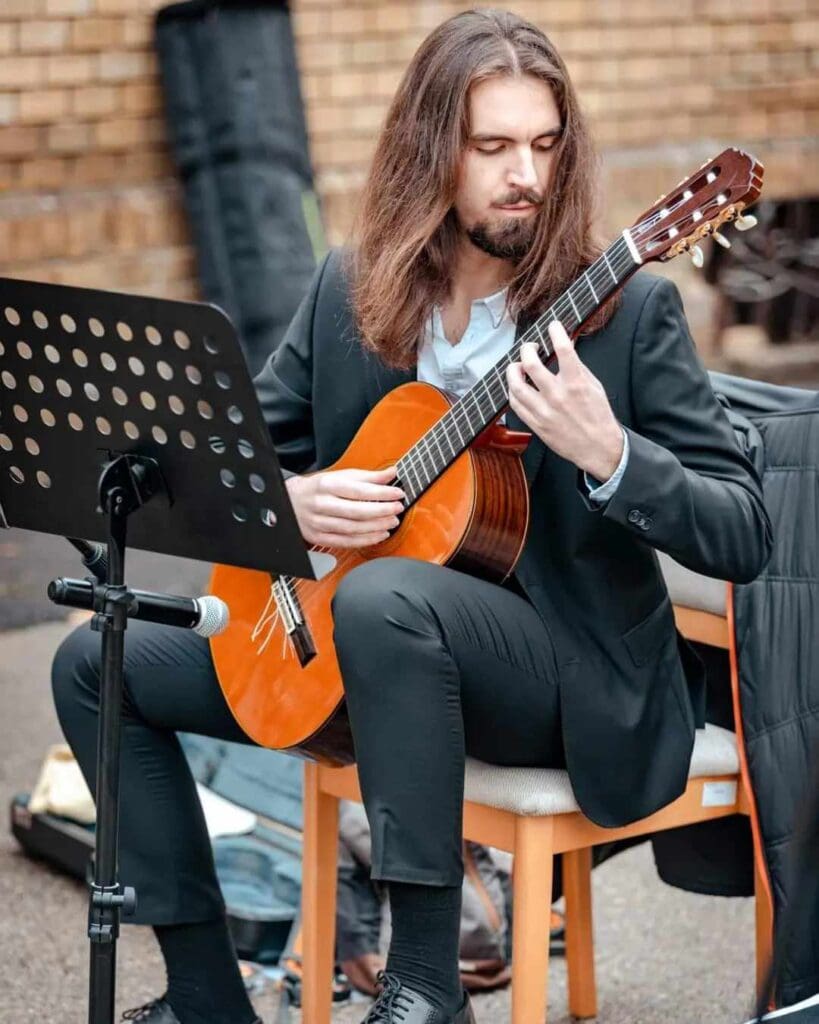
Does this mean you want to stay and live in Hungary, even after your PhD? Why?
Yes. The only issue that could change my plans will be not being able to work within my profession, but I hope that will not be the case. I also want to apply for Hungarian citizenship this summer. Wherever you want to be a teacher in Europe, you need to speak the language. That’s my first limitation because I only speak English, in addition to Macedonian, Serbian and Croatian, and now I’m learning Hungarian. I have been working as a guitar teacher for eight years, so my biggest wish would be to continue doing that in Hungary. I hope that my language skills will develop to allow me to teach in Hungarian in a couple of years. I really would like to make my living out of this profession. Also,
I think Hungary is a good and safe country where I can start a family, get married and have kids.
I also have a personal connection to Hungary. For me, it is not just a country on the map. And even some Hungarians feel this connection with me and treat me accordingly, like somebody who came back, came home. Not everyone, of course, I have had some negative experiences as well, but that you can find anywhere in the world, and when I put them on a balance, the good things are much bigger than the bad experiences. So, this is why I imagine my future in Hungary. My mother is also planning to move to Hungary in the future.


